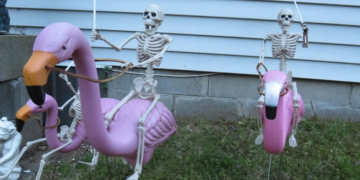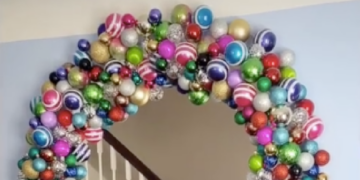When it comes to matters of the heart, sometimes we miss warning signs that later prove crucial. Louanne Ward, a Master Certified Matchmaker, highlights a phrase that’s a major relationship red flag: “I don’t want to hurt you.” She explains that this line often reveals more than it seems, signaling a potential lack of commitment. Let’s dive into the underlying meaning and explore the lessons we can draw from this
The Allure of Red Flags
Embed from Getty ImagesWhen emotions are high, it’s easy to overlook concerning signs in a relationship. People often get swept up in passion and desire, which can blind them to cues that indicate future trouble. Being able to recognize a red flag could save you from heartbreak.
Unpacking the Hidden Meaning Behind “I Don’t Want to Hurt You”
Embed from Getty ImagesAt first, “I don’t want to hurt you” might seem like a compassionate sentiment, but Louanne Ward, a certified matchmaker, explains it’s actually a way of signaling emotional withdrawal. It’s not an expression of care but an indirect admission that one person is more invested than the other. This line typically reflects a growing imbalance in feelings, where one partner is pulling away, setting the stage for a potential emotional disconnection.
Emotional Withdrawal Before the Breakup
Embed from Getty ImagesWhen someone uses the line “I don’t want to hurt you,” it’s often a precursor to distancing themselves emotionally. According to Louanna Ward, if someone truly saw a future with you, they wouldn’t be preparing you for an inevitable ending. The phrase hints at an impending breakup, with the person already anticipating that they’ll eventually hurt you. This emotional withdrawal can signal that the relationship may be headed for a dead end.
The Role of Self-Preservation
Embed from Getty ImagesWard explains that this phrase can also be a form of self-preservation. It allows the person to let you down gently, by making them appear considerate and kind. It’s a way of evading guilt for a breakup because they’ve “warned” you in advance. While it may seem thoughtful on the surface, it’s often a sign that the person doesn’t want to fully commit to the relationship.
How to Respond When You Hear It
Embed from Getty ImagesIf you hear this line, Ward advises that you take it seriously. Instead of brushing it off, ask yourself if this relationship aligns with your goals. Are you looking for a committed partnership, or are you simply holding onto something that’s already beginning to fade? Don’t be afraid to assess the situation critically. The more you understand about what’s truly going on, the easier it will be to make an informed decision.
Why “I Don’t Want to Hurt You” Signals a Hidden Agenda
Embed from Getty ImagesLouanna Ward insists that if someone truly cared about you and saw a future together, they wouldn’t use this line. They would be actively committed to the relationship, and would not hesitate to reassure you of their feelings. The moment you hear the words “I don’t want to hurt you,” it’s important to recognize that the person may already be preparing for an exit. It’s a warning that future emotional pain is inevitable.
The Impact on Your Self-Worth
Embed from Getty ImagesThis line can affect your self-esteem by making you feel as though you’re not enough or that you’re being set up for disappointment. Ward encourages individuals to look at the larger picture and ask themselves whether they truly want to invest in a relationship that is potentially leading to hurt. Being honest with yourself about your worth can help you make the right decision
The Importance of Setting Boundaries
Embed from Getty ImagesWhen faced with such a statement, it’s essential to establish boundaries. Ward suggests that if you want a relationship where both parties are equally invested, it’s important to communicate that. If the other person is not willing to meet you halfway, then it’s time to rethink the relationship and protect your emotional well-being.
Evaluating the Relationship’s Long-Term Potential
Embed from Getty ImagesThe key takeaway from Ward’s advice is evaluating the long-term potential of any relationship. If someone uses this line, it’s likely that they don’t see you in their future. It’s a moment to reassess whether this relationship is worth continuing or whether it’s time to move on and preserve your emotional health.
Moving Forward: Trusting Your Instincts
Embed from Getty ImagesFinally, trusting your instincts is paramount. Louanna Ward emphasizes that if something doesn’t feel right, it probably isn’t. Even if you feel strong emotions for this person, it’s crucial to pay attention to the signs and trust that your instincts will lead you to the best decision. Don’t ignore red flags, no matter how small they might seem.



















































